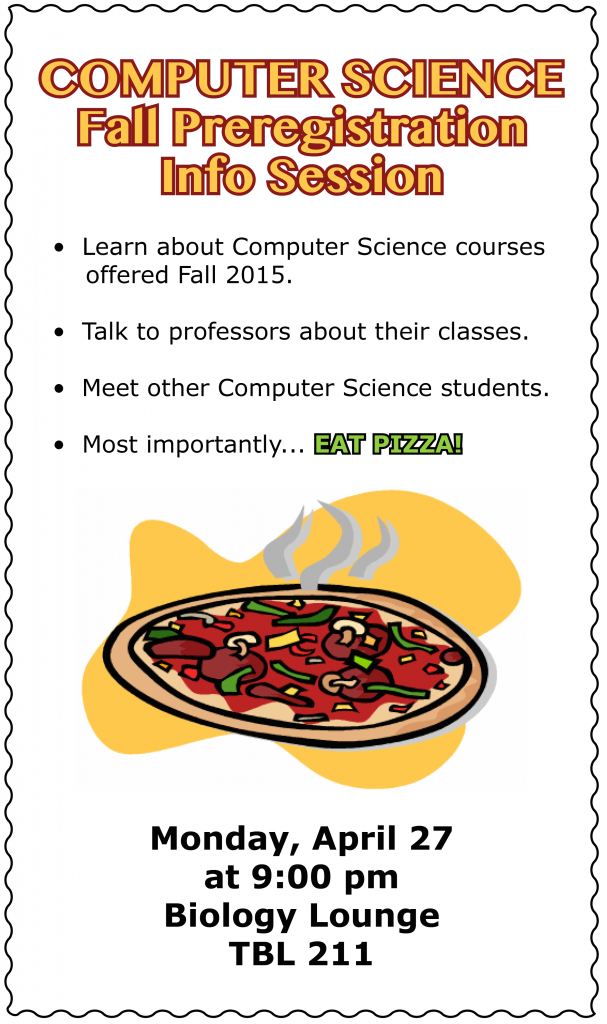Jamie Lesser ’17 (fourth in line) won first place in the undergraduate category of the ACM Student Research competition at the Grace Hopper Conference, held in Houston, TX.
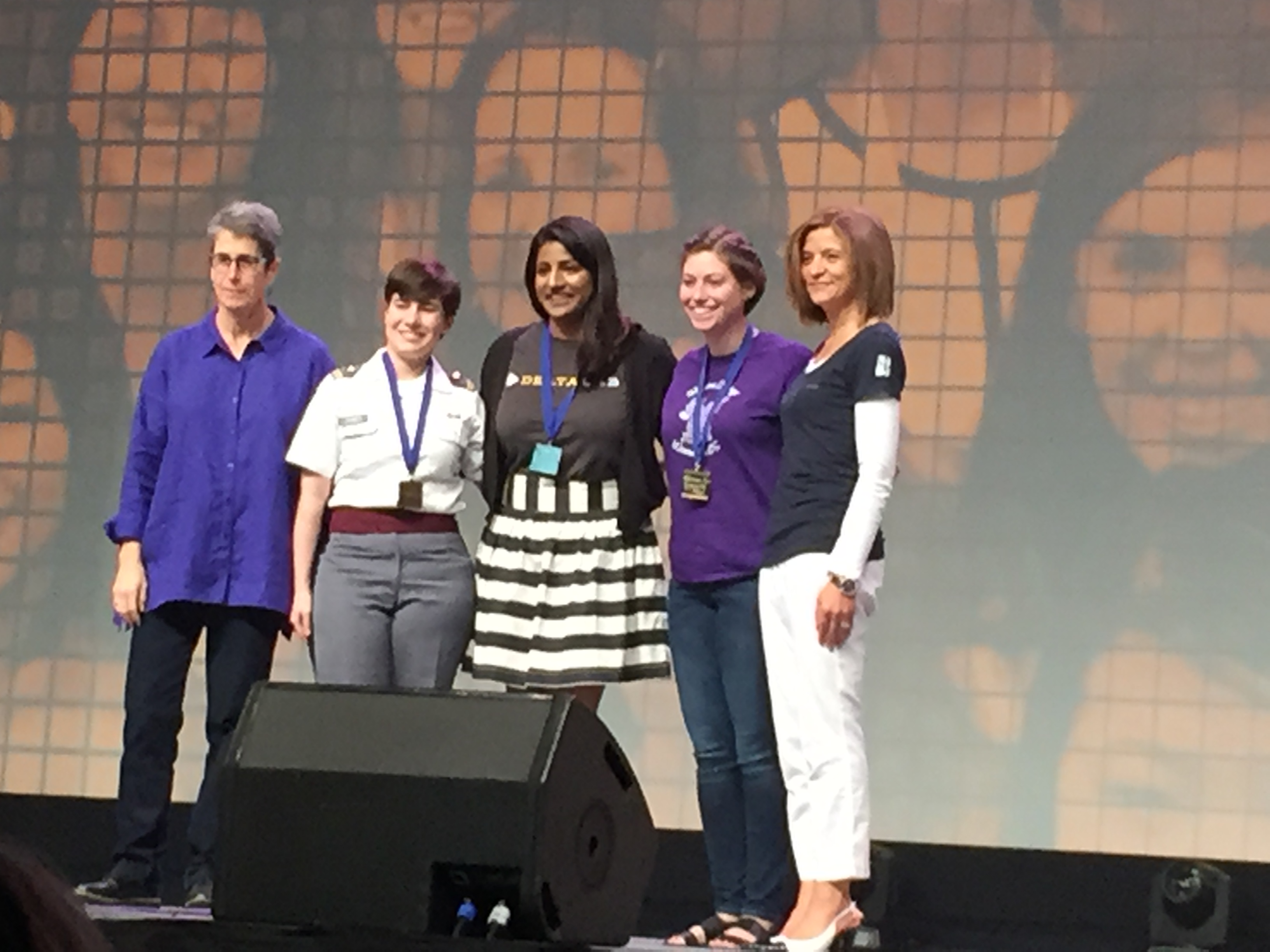
Jamie Lesser ’17 (fourth in line) won first place in the undergraduate category of the ACM Student Research competition at the Grace Hopper Conference, held in Houston, TX.

The Computer Science Department’s Class of 1960 Scholars Lecture Series
Thursday, October 22 at 8:00 pm in TPL 203
From Promise to Practical: A Half-Century of Virtual Realities
Computer graphics, like many technologies, has advanced from limited demonstrations of promising ideas to practical and widely used implementations. These artifacts then reach a commodity stage of higher performance, lower cost, and wider distribution. In this manner the experience of a few astronauts training to land on the moon using a one-of-a-kind visual simulator can be extended to millions of consumers playing realistic 3D video games in their living rooms.
While Moore’s Law for semiconductor devices is the major factor opening the way to practicality, the evolutionary path for graphics devices is more complex than simply riding the wave of denser and faster silicon circuitry. Two recurring themes in the history of graphics systems are the convergence of multiple, independently developed device disruptions and the re-emergence of techniques once thought to be impractical. This talk looks both forward and backward in an attempt to identify the disruptions which will move today’s promising ideas into tomorrow’s practical realm.
 Turner Whitted is a researcher with experience ranging from graphics hardware to HCI and pervasive computing. He is currently experimenting with novel display technologies as a member of NVIDIA Research. His career has included terms as a manager at Microsoft Research, as cofounder and president of game engine company Numerical Design Limited, and as a member of the technical staff at Bell Labs where he introduced the use of recursive ray tracing to implement global illumination. He earned BSE and MS degrees from Duke University and a PhD from North Carolina State University, all in electrical engineering. He is an adjunct faculty member in the Computer Science Department at UNC Chapel Hill and in the Electrical and Computer Engineering Department at NC State University. He is an ACM Fellow and a member of the National Academy of Engineering.
Turner Whitted is a researcher with experience ranging from graphics hardware to HCI and pervasive computing. He is currently experimenting with novel display technologies as a member of NVIDIA Research. His career has included terms as a manager at Microsoft Research, as cofounder and president of game engine company Numerical Design Limited, and as a member of the technical staff at Bell Labs where he introduced the use of recursive ray tracing to implement global illumination. He earned BSE and MS degrees from Duke University and a PhD from North Carolina State University, all in electrical engineering. He is an adjunct faculty member in the Computer Science Department at UNC Chapel Hill and in the Electrical and Computer Engineering Department at NC State University. He is an ACM Fellow and a member of the National Academy of Engineering.
The Computer Science Department is now accepting applications for teaching assistants and tutors for Spring 2016 semester. We are interested in finding TAs for classes ranging from our introductory classes to our upper-level core classes and electives. You may be a TA for any class you have completed (or CS 134), and we encourage even those early in the major or who have taken only one or two CS courses to apply. Please apply before October 30 by filling out the online form available.
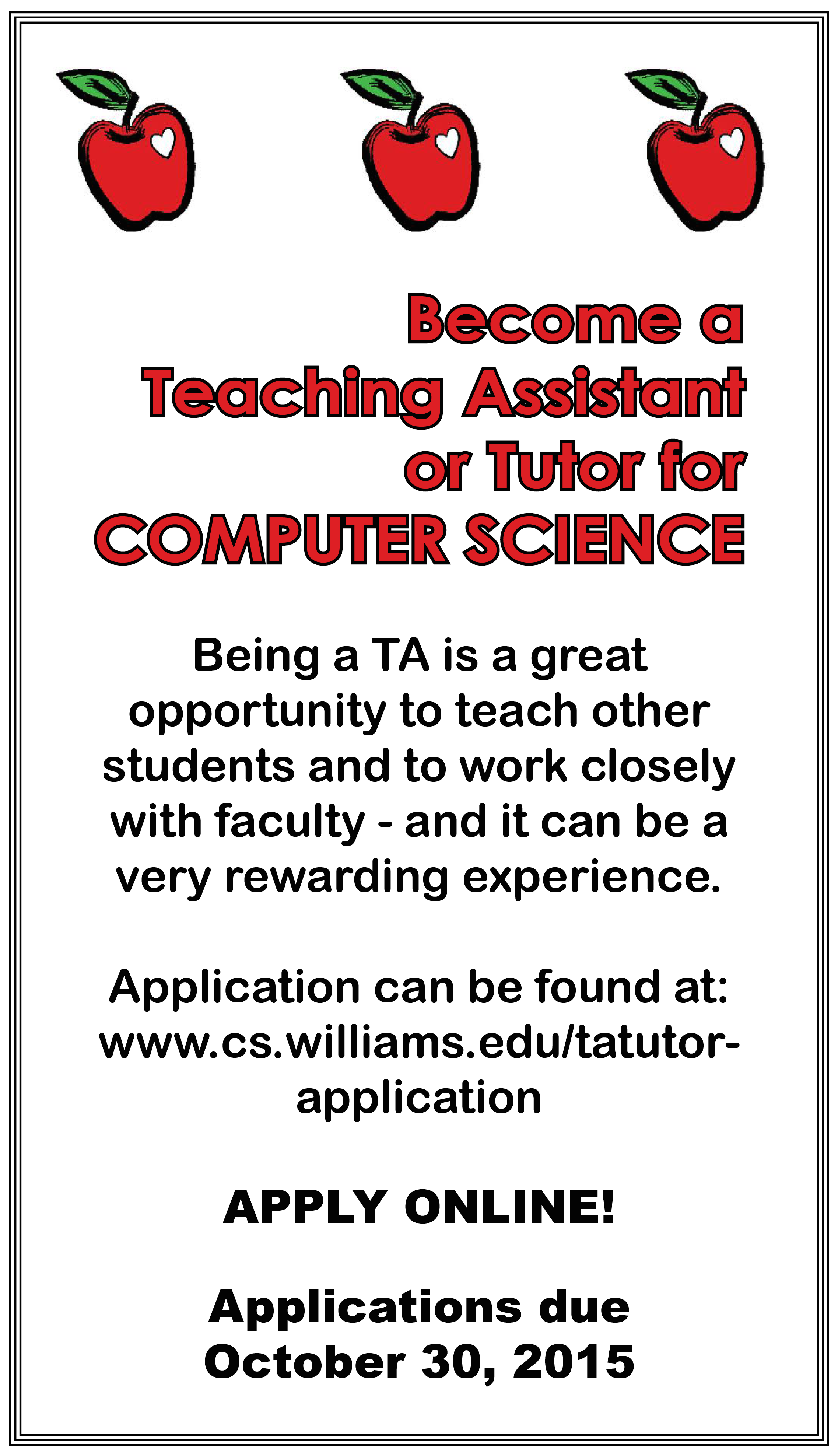
Join Williams CS alums and Google employees Josh Ain ’03 and Hilary Hutchinson ’97 on Thursday October 1 in TCL 206 from 7-9pm to learn about technical job interviews, watch a live mock interview, and ask questions about working in the tech industry, graduate school (or not), and anything else. Pizza and prizes included! RSVP at https://goo.gl/AS8CIW.
Congratulations to the Computer Science majors who were inducted into Phi Beta Kappa this fall:
Tong Liu
Blake Mackall
Austin Paul
Kai Wang
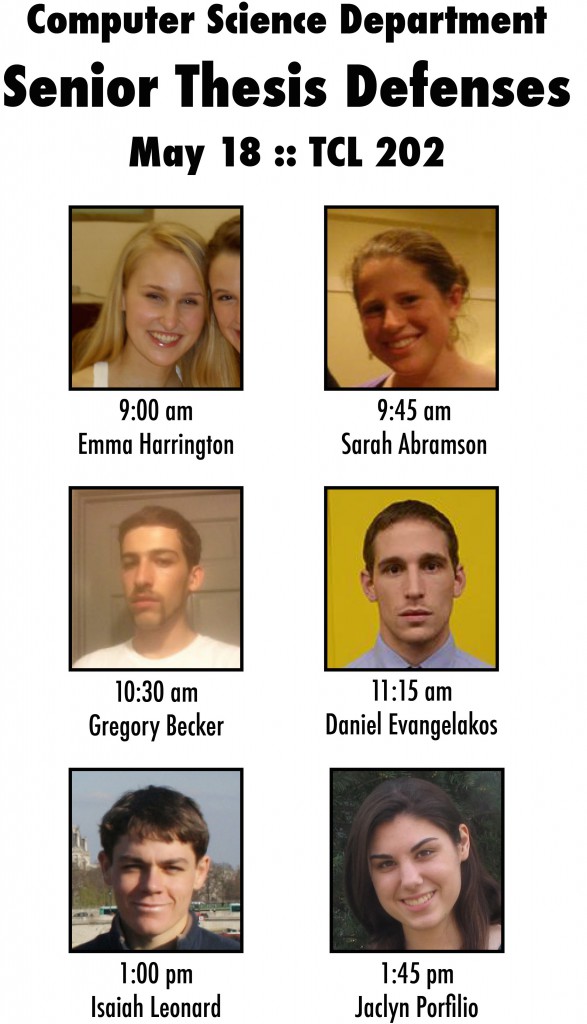
Play now on iPhone, iPad, and iPod Touch!
Art 107/CSCI 107: Creating Games
Project Rocket Golfing uses the software tools and processes that Prof. McGuire developed for teaching Art107/CS107: Creating Games at Williams. That course teaches students to treat games as an artistic medium. They consider how they will address social topics in their work, including violence, gender, and ethnicity.
Students in the course follow a process of design, implementation, and polish augmented by testing and refinement. McGuire used the worksheets and schedule guidelines from the class, documented his design, and followed the brainstorming and testing processes.
Students are often surprised to find that only about 20% of the development process for a game is creating the main features. The rest is planning, testing, and refinement. McGuire followed this, requiring that the game was playable after only one weekend. He then spent the next two months running over fifty external play tests of the game. Testing was done by children, experienced adult players, and many people who had never played any video game before. The final game meets both his artistic and software quality goals.
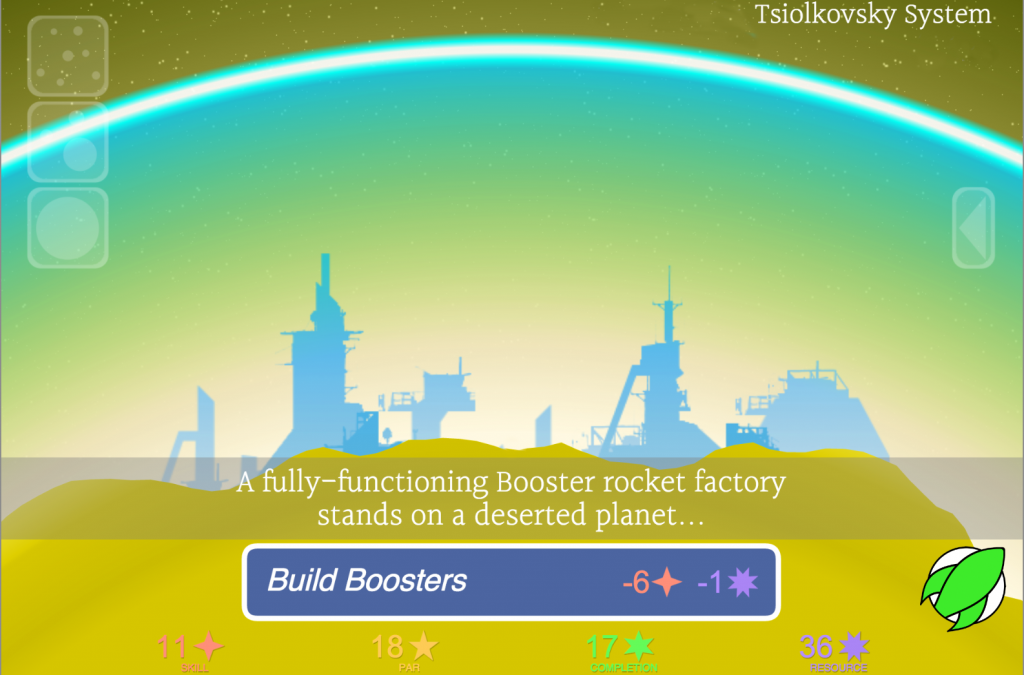
Simulating Astronomy
Project Rocket Golfing is a game about exploration and discovery. It is set in an infinite, procedurally-generated universe based on the names that you choose for galaxies. It begins as mini-golf in space, on rocky planets. When playing, you’ll name the galaxies that you discover. For example, you might name them after yourself, your friends, or science fiction themes. Each name that you choose is a galactic seed. It spawns solar systems and the stars within them, and then planets, asteroids, and moons.
All from the single name that you chose, the app runs a realistic simulation computes the elements, temperature, and humidity on planets. These influence the orbits, size, terrain, and alien species that evolve. This is why each galaxy is complex and unique. Often you’ll discover a really interesting galaxy filled with lost civilizations, space stations, and natural resources. You can share the galaxy’s name with friends or on social media. Then, other people can type it into their game and visit the same galaxy that you’ve created.
This complex simulation was inspired by topics of scaling and emergence presented in the courses that McGuire taught this year, including CS107, CS136: Data Structures, and CS371: Computational Graphics.
The game captures Prof. McGuire’s favorite moments from science fiction and real space exploration: first setting foot on a new world, gravity slingshotting around a planet, dancing between asteroids, deploying from a dropship, blazing atmospheric entry, clinging to the side of a space station, and breathtaking leaps into the unknown.
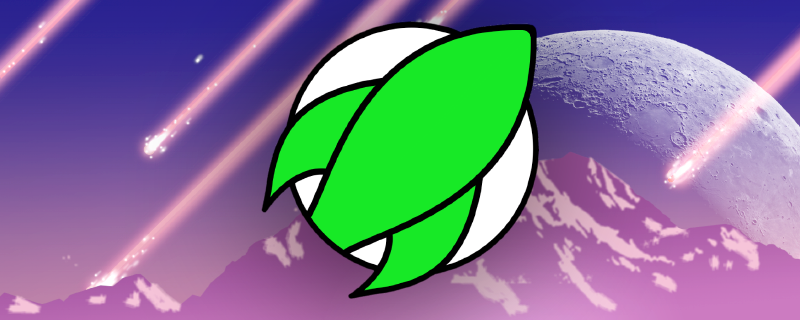
Diversity
The great theme of space exploration is that it brings together the human race. There have been many great men and women involved in the science, engineering, and literature of space, from many different nations. The game introduces these heroes through quotations and facts to celebrate human diversity and inspire the next generation of explorers, in the same spirit that our faculty and students approach their courses.
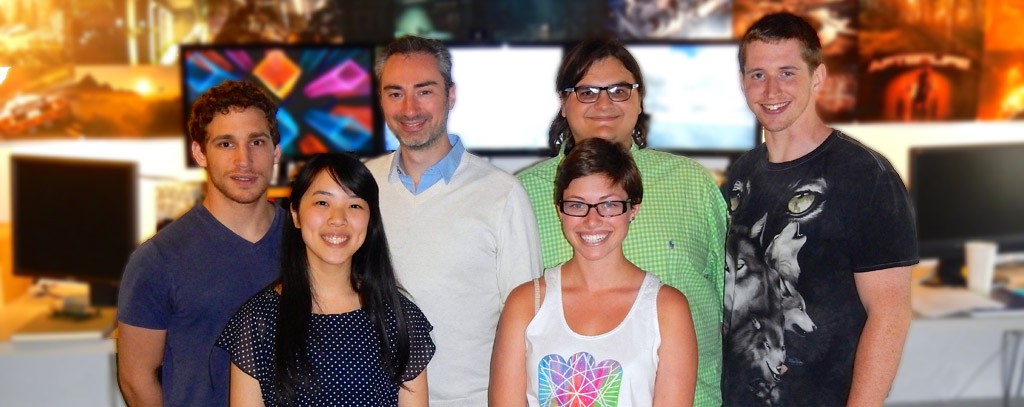
Prof. McGuire (white sweater) and the Williams College Graphics Research group: Dan Evangelakos ’15, Sam Donow ’16, Mike Mara (NVIDIA) ’12, Kelly Wang ’16, and Jamie Lesser ’17
